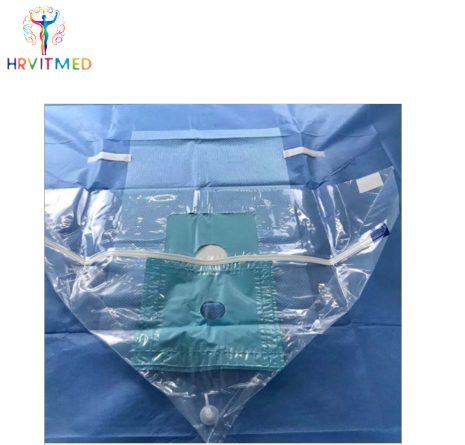The Vital Role of Nonwoven Surgical Packs in Infection Control
9/23/20242 min read
Introduction to Nonwoven Surgical Packs
Nonwoven surgical packs play an essential role in the medical field, particularly in infection control. These specially designed packs are used in surgical procedures to provide a sterile environment, minimizing the risk of infection for both patients and healthcare providers. In recent years, the importance of maintaining high standards of hygiene within surgical settings has become increasingly apparent, highlighting the need for effective solutions such as nonwoven surgical packs.
Benefits of Nonwoven Surgical Packs
One of the main advantages of utilizing nonwoven surgical packs is their ability to prevent contamination during surgical procedures. These packs are constructed from materials that are designed to be sterile, lightweight, and breathable, ensuring optimal protection. Unlike traditional woven fabrics, nonwoven materials provide superior barrier properties, effectively blocking bacteria and other pathogens from making contact with surgical instruments and the surgical area.
Moreover, nonwoven surgical packs are pre-packaged and ready for use, which greatly reduces the time required for surgery preparation. This convenience allows healthcare professionals to focus on patient care and procedural efficiency, thus enhancing overall surgical outcomes. The use of these packs can also streamline inventory management, as they are available in various configurations to meet different procedural requirements.
Impact on Infection Control
Infection control is a critical aspect of patient care in every healthcare setting. Through the use of nonwoven surgical packs, hospitals and surgical centers can significantly reduce the incidence of surgical site infections (SSIs). The sterile environment achieved with these packs contributes to safer surgeries, ultimately leading to quicker recovery times and improved patient satisfaction.
Moreover, by integrating nonwoven surgical packs into their infection control protocols, healthcare facilities can enhance their compliance with national and international safety standards. This not only furthers patient safety but also strengthens the facility's reputation in the healthcare community.
Conclusion
In summary, nonwoven surgical packs are indispensable tools in modern surgical practice, playing a pivotal role in infection control. Their effective barrier properties, ease of use, and ability to enhance surgical safety underscore their importance. As the demand for high-quality infection control measures continues to evolve, nonwoven surgical packs will remain a vital component in ensuring the health and safety of patients undergoing surgical procedures.
© 2024. All rights reserved.


